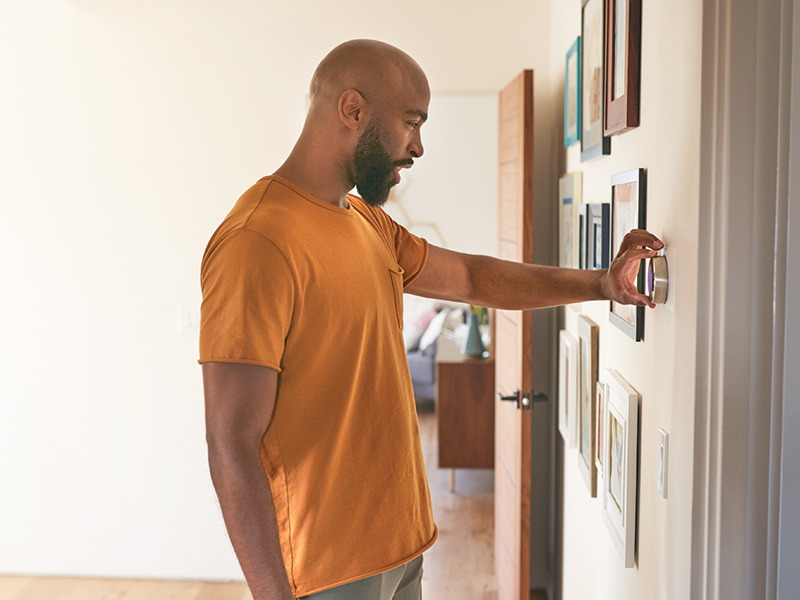How to protect your cold propane tank whether you plan to store it, grill with it, or heat your home
Winter comes with a list of to-do’s that could be ripped from a classic holiday movie: stockpile firewood, string holiday lights, shovel snow, replenish cocoa inventory…. Typically, “check propane tanks” is not high on that list.
And that’s fine! With such a low-maintenance fuel source, it’s easy to keep your propane happy and ready to go whether you’re curling up in front of an outdoor fireplace, putting the grill away for the winter, or just wanting to keep your appliances running smoothly and safely in all weather. Just review these winter propane tips to get the most out of your tanks all year round.
How to Care for Your Propane Grill Tanks in Winter
The smallest propane tanks are popular because they’re powerful, reliable, and easy to use and maintain. This is as true in winter as it is in the other three seasons. However, there are a few extra steps that are a good idea to follow for prolonged storage.
If you’re storing a grill tank...
Storing a propane grill tank for the winter is usually as simple as leaving it in its grill or fire pit cabinet until you’re ready to use it again. Still, it’s worth taking a few extra precautions no matter what the weather’s like outside.
For your checklist:
-
Make sure the gas valve is in the OFF position.
-
Keep the tank and appliance away from any other fuel sources or ignition devices such as gasoline or electrical wiring.
If you do decide to store your grill tank separately, keep it in a shed or other protected space out of direct sunlight. Best practice is to put it someplace low to the ground, not up on a shelf, to avoid damaging the tank in case of a fall or drop. And never store your tank on its side or upside down.
If you’re using your grill tank...
Grilling in winter? Cozying up around an outdoor fireplace? Go for it. Your grill tank will work fine if you keep it in the appliance cabinet as usual. You may want to check the valves for leaks or damage after exposure to harsh weather (think hailstorms, blizzards), but a grill tank that’s in good shape will keep you toasty and grilling all winter.
Home Propane Tanks: Should You Winterize?
Propane tanks are made to be outside. The thick metal they’re made of can withstand even very harsh weather. The same is true for underground tanks. They are manufactured and installed to be insulated from all kinds of weather, including extreme cold.
Yet there are plenty of myths out there about winter propane care (Do propane tanks freeze? Answer: Nope!) – most of them good excuses to sell “warming blankets” and other products you don’t need. While there’s no harm in covering your tank, it is not at all necessary. However, there are a few things we ask customers to do in the winter to make tank refills easier:
For your checklist:
-
Make sure there is always clear access to your tank’s refill cap. Brush away snow and remove any ice.
-
Keep a clear path in the driveway, sidewalks, and any other areas leading to the tank.
This basic upkeep will make it easier for technicians when they deliver propane.
Winter Tip for All Propane Tanks
One of the physical properties of propane is that it shrinks in the cold and expands in the heat. You may have noticed this reflected on your tank gauge from day to day, rising in the midday sun and dropping on chilly nights. The same principle holds true when temperatures drop in the winter. So, you may see your tank pressure drop even though you just had it refilled.
A fascinating bit of science -- and nothing you’ll notice in any practical sense. Even if the pressure adjusts, you won’t see a difference in how much fire is in the logs or how much flame is showing on the burner, or how much heat is coming out of your furnace. All you need to do is… not much.
For your checklist:
-
Simply keep tabs on the propane levels of all your tanks — as you always do — and schedule a refill if the meter reads below 30 percent.
In the End, Winter Propane Tank Care Is Pretty Simple
Your approach to winter propane tank care is basically a matter of regular maintenance and tank pressure monitoring. Products and tricks aimed at keeping the tank warm are mostly just hype. The safest and most effective way to keep up the pressure on your above-ground tank is to keep it adequately filled.
Track your propane levels and schedule refills automatically. Sign up for remote tank monitoring and automated refills from AmeriGas.
Propane Safety - Winter Propane Delivery
Propane Winter Weather Guidelines
Guidelines for a Propane Worry-Free Winter
Propane Safety Go to blog list page filtered for the category

